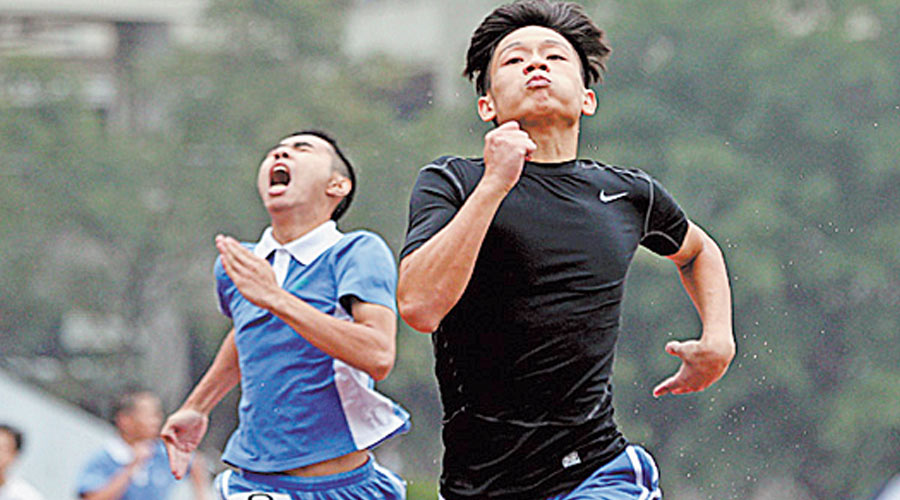Even though Chinese sportspersons dazzle us at every Olympics, China is struggling to inculcate fitness among its youth. A recent announcement by Yunnan University, that students will not get their degrees if they failed their physical education tests, has been greeted with dismay. A journalist thanked his good fortune that he was long past that stage, reliving his “painful memories” of struggling to pass the PE tests that are mandatory in the first two years of college. Students in another university spoke of the dread that overcame them days before the annual PE test.
For men, the test involves a long jump, pull-ups on bars, push-ups and a run of 1,000 metres that must be completed within four minutes and 32 seconds. For women, it’s just one event: an 800-metre run in four minutes and 35 seconds. The time set for the run has been increasing; although students are allowed to try multiple times, the numbers who fail are so large that the authorities simply let them pass.
This desire of the authorities to see a fit young generation free from obesity and myopia that have been increasing among Chinese youth comes to the fore every now and then. It’s not new: in 1999, the Chinese Communist Party declared that the guiding principle of education would be “Health First”. It was actually Mao Zedong who gave the slogan “Health First, Academics Second” when the Republic was just two years old. Like many of the goals he set about achieving, this, too, has been completely turned on its head.
While primary schools allot enough time for sports and exercise, by the time students reach middle school, they find that teachers themselves have given up on “health”. As one student recalled, most of the time, PE was cancelled and the time slot used for weightier subjects. The only time it was taken seriously, he added, was towards the end of middle school, when a PE exam was held. Marks in that exam count for entry into high school. Now, there are moves to increase the minimum cut-off for this exam too.
But PE forms no part of the gaokao, the pre-university entrance exam compulsory for anyone aspiring to join college, and reputed to be among the toughest in the world. Considering that students spend the entire last year of high school preparing for it, studying late into the night, let out for fresh air only when teachers think it necessary, how can they suddenly turn into runners on entering college? The idea of incorporating physical education as a subject in the gaokao was mooted a few years ago, only to be shot down. Yunnan University has now made 200 hours of PE mandatory for students, but unless sport is made an integral part of school education at all stages, goals of fitness will remain unrealistic and counter-productive.
However, Xi Jinping is serious about making China a “sports power”, even if it has to be done by legislation. A new law says that gaming parlours can no longer allow minors to play video games except for an hour on weekends and holidays, and the National Sports Law may be amended to make gym classes and one hour of sports every day mandatory in schools.
Then there’s the “double reduction” education policy introduced in July last year, which banned private coaching centres from conducting classes on weekends and holidays, and ordered schools to reduce homework. As coaching centres closed, sports and arts centres increased to meet the demand. Parents now want their kids to master at least one sport. Again, it’s the pressure that’s driving them.











